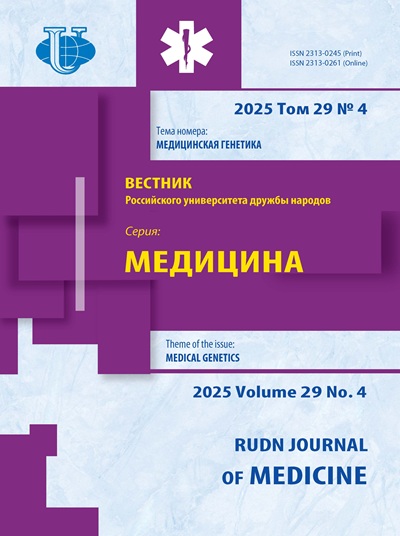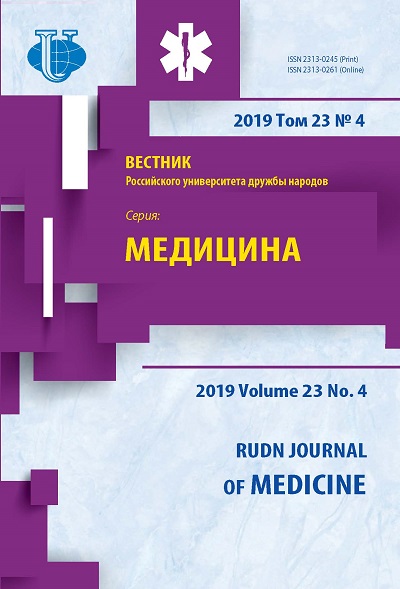Studying Possibilities of Using Beebread in Medicine with the Follow-Up Development of a Means to Improve Immunity
- Authors: Shavrina D.I.1, Nesterova N.V.1, Nesterova O.V.1, Birukova N.V.1, Iaroshenko A.A.1
-
Affiliations:
- Sechenov Medical University, Resource center “Medical Sechenovskiy Preuniversary”
- Issue: Vol 23, No 4 (2019)
- Pages: 412-417
- Section: IMMUNOLOGY
- URL: https://journals.rudn.ru/medicine/article/view/22802
- DOI: https://doi.org/10.22363/2313-0245-2019-23-4-412-417
- ID: 22802
Cite item
Full Text
Abstract
In the course of the analysis of scientific literature, the composition of the bee bread containing biologically active substances (arginine, phenylalanine, isoleucine, leucine, lysine, methionine, threonine), mineral salts, trace elements and valuable vitamins that enhance immunity was studied. The complex of reactions recommended by the State Pharmacopoeia of the Russian Federation was used to determine the main groups of biologically active substances characteristic of natural raw materials. As an object of research, bee bread was used. The raw materials were identified: amino acids, hydroxyacids, saponins, flavonoids, tannins, coumarins, pectins. This beekeeping product can be recommended for use in medicine as a perspective drug.
Keywords
About the authors
D. I. Shavrina
Sechenov Medical University, Resource center “Medical Sechenovskiy Preuniversary”
Author for correspondence.
Email: d_shavrina2002@mail.ru
Moscow, Russian Federation
N. V. Nesterova
Sechenov Medical University, Resource center “Medical Sechenovskiy Preuniversary”
Email: d_shavrina2002@mail.ru
Moscow, Russian Federation
O. V. Nesterova
Sechenov Medical University, Resource center “Medical Sechenovskiy Preuniversary”
Email: d_shavrina2002@mail.ru
Moscow, Russian Federation
N. V. Birukova
Sechenov Medical University, Resource center “Medical Sechenovskiy Preuniversary”
Email: d_shavrina2002@mail.ru
Moscow, Russian Federation
A. A. Iaroshenko
Sechenov Medical University, Resource center “Medical Sechenovskiy Preuniversary”
Email: d_shavrina2002@mail.ru
Moscow, Russian Federation
References
- Beebread. Specifications GOST 31776-2012. Electronic resource. Available from: http://docs.cntd.ru/document/ 1200096967 (In Russ.)
- Dubtsova EA Clinical and experimental rationale for the use of beekeeping products in the treatment of certain diseases of the digestive system. PhD thesis of doctor of medical sciences. Moscow. 2009; 175 p. (In Russ.)
- Nekrashevich VF et al. A unit for extracting bee bread from. Beekeeping. 2009;9: 47—8. (In Russ.)
- Astrauskene AE, Kadziauskien KV. What do we know about beebread. Beekeeping. 1990;7: 30—2. (In Russ.)
- Bilash NG. The effect of stocks of bee bread on the quality of bees. Beekeeping. 1990;4: 6. (In Russ.)
- Vakhonina TV. The unity of beekeeping products. Beekeeping. 1989;10: 32—4. (In Russ.)
- Dubtsova EA, Tsaregorodtseva TM, Serova TI, Kasyanenko VI. The effect of beekeeping products on the level of cytokines in the treatment of peptic ulcer of the duodenum. Experimental and clinical gastroenterology. 2004;1: 155—6. (In Russ.)
- Akimov IA, Naumkin VP. Honey and the environment. Beekeeping. 2000;7: 12—4. (In Russ.)
- Burenin HJI, Kotova GN. Handbook of beekeeping. Moscow: Kolos; 1984; 310p. (In Russ.)
- Bilash NG. The effect of stocks of bee bread on the quality of bees. Beekeeping. 1990;4: 6. (In Russ.)
- Vinogradov TV, Zaitsev GP. Bees and human health. Moscow: Publishing House of Medicine; 1964. 236p. (In Russ.)
Supplementary files















